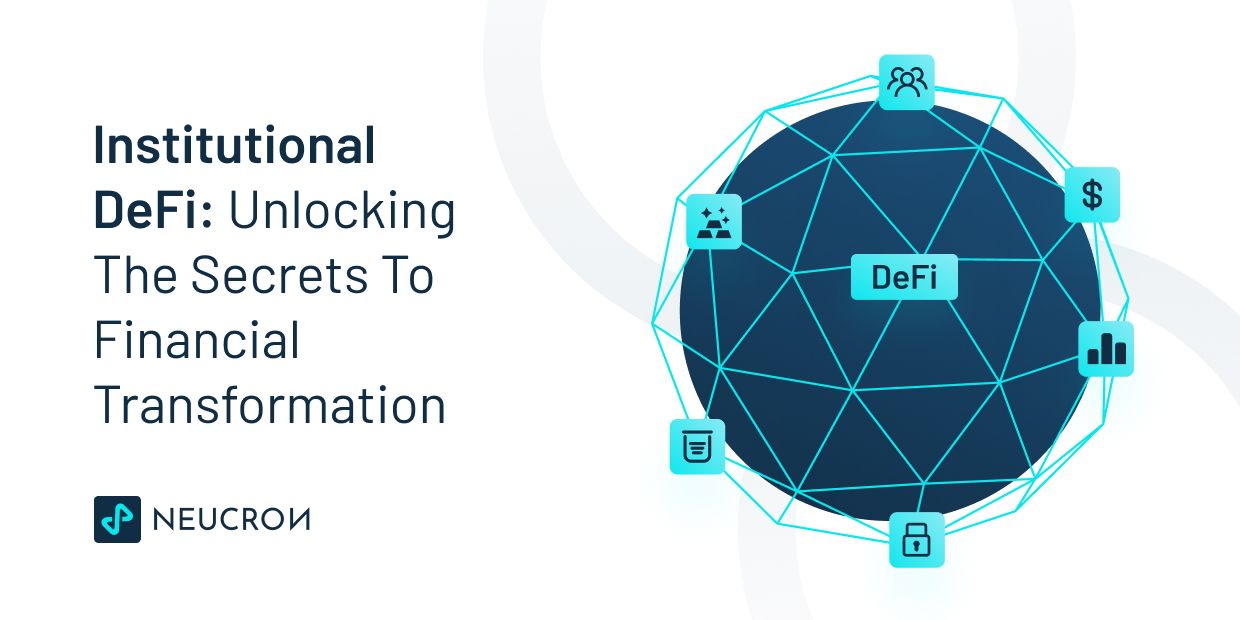In the ever-evolving finance sector, blockchain technology has brought a wave of innovations. At the forefront of this advancement lies the institutional DeFi. It is emerging as a powerful force reshaping the traditional contours of financial markets. Currently, the total value locked (TVL) in the DeFi system stands at $54.78 billion.
DeFi represents a financial revolution, decentralizing traditional services and democratizing access to banking. This blog will highlight how institutional DeFi and tokenization are together, paving the way for a more seamless financial ecosystem.
What is DeFi?
DeFi, or decentralized finance, is a financial services network built on blockchain technology. In contrast to traditional finance, DeFi operates without central authorities. It utilizes smart contracts to automate and decentralize funding, borrowing, trading, and asset management.
By eliminating intermediaries, it enhances financial inclusion, empowers individuals, and reshapes the global landscape of conventional finance. In functions 2022, the user base of DeFi reached up to 4.8 million, which is a testament to its efficiency.
How DeFi Democratizes Investment Opportunities through Tokenization?
Institutional DeFi leverages blockchain technology to tokenize securities, including shares, bonds, and other financial instruments. This process involves converting these assets into digital tokens, allowing for more efficient and secure transactions.
It streamlines the trading process and enables fractional ownership. This approach allows investors to own a portion of a share, making markets more accessible and inclusive.
As a result, security Tokenization facilitates raising capital from a broader audience through crowd investment. Businesses can tokenize their shares and offer them to a global pool of investors. This democratization of investment allows businesses to access funding more efficiently. It also enables investors to participate in opportunities traditionally limited to a select few.
Understanding the Tokenization of Financial Instruments
Tokenization has enabled the transformation of financial instruments into digital assets powered by the blockchain.
Henry Chong, the CEO of Fusang, predicts that by 2030, one out of every four publicly listed securities globally could undergo tokenization. As per Statista, around 46% of companies worldwide in 2021 have opted for asset tokenization.
Tokenization contributes to the diversification and accessibility of decentralized financial markets. Here are a few examples of tokenized financial instruments, each serving a distinct purpose.
- Tokenized Debt Instruments: Tokenized debt instruments are a digitized form of traditional debt instruments. For example, a company decides to tokenize its shares on a blockchain platform. They issue digital tokens, each representing one share in the company. Investors worldwide can now purchase these tokens directly on the blockchain. It eliminates the need for traditional stock exchanges, promising swift ownership transfers and automated settlements.
- Bonds on Blockchain: Tokenization simplifies the way bond issuance and trading occur. Consider a government issuing bonds as digital tokens on a blockchain. This process abridges the issuance process. Investors can directly trade these tokenized bonds, reducing the need for intermediaries and minimizing associated costs. The transparency and security of blockchain transactions further enhance market accessibility for issuers and investors alike.
- Commodities on Blockchain: Tokenized commodities are digital assets that mirror the value of tangible goods. These include precious metals, agricultural products, energy resources, and other physical commodities. For instance, miners and refineries tokenize gold production. Each digital token may represent around 1 gram of gold. This enhances liquidity, traceability, and certainty in commodity markets. It allows users to buy, sell, and transfer physical gold without hassle.
- Tokenized Derivatives: Tokenized derivatives are digital tokens representing ownership or rights to an underlying asset. They provide transparency and trust in derivative markets. The ownership details of the underlying asset are recorded on the blockchain. Tokenization ensures a transparent and immutable record of ownership. It reduces the risk of fraud and provides a more trustworthy environment for derivative transactions.
- Innovative Financial Instruments: Blockchain, coupled with smart contracts, allows for developing innovative financial instruments that go beyond traditional offerings. One notable example is the creation of decentralized autonomous organizations (DAOs). These entities operate through self-executing smart contracts, enabling decentralized decision-making and fund management.
Technological Solutions by Neucron API for Secure and Compliant Tokenization
It is crucial for security tokens on the blockchain to possess certain abilities to meet regulatory standards. Neucron API offers the following solutions for ensuring compliance with tokenization:
- KYC Verification: Security token contracts mandate that only wallets with Know Your Customer (KYC)-compliant information can receive the security token. It reinforces security and aligns tokenization with regulatory identity verification standards.
- Freeze and Callback Mechanism: The technology allows for the freezing and callback of security tokens based on the regulator's orders. It ensures swift regulatory intervention and real-time compliance adjustments.
- Traceability on Blockchain: Traceability is the essence of security token contracts on blockchain for creating a transparent transaction history. This feature satisfies auditability requirements and ensures regulatory visibility.
Neutron API makes the issuance of security tokens a breeze!
The Summary
As we tokenize financial instruments, we are fortifying the foundation of trust that underpins financial markets. This shift is about a fundamental transformation in how we create, trade, and manage financial assets in the digital age.
Schedule a demo today to harness the cutting-edge capabilities of Neutron API!
References
https://www.banklesstimes.com/defi-statistics/
https://www.statista.com/statistics/1279848/blockchain-use-in-financial-services/
https://www.oliverwymanforum.com/future-of-money/2022/Nov/institutional-defi.html

